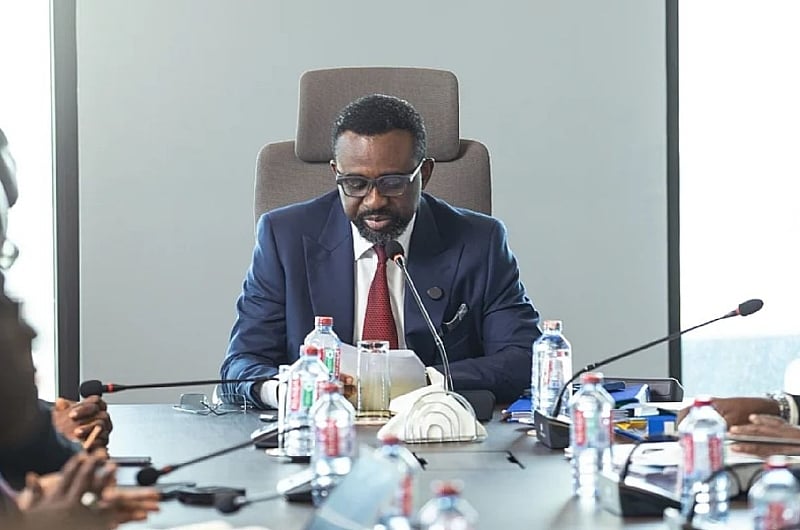Paragraph 1: The Current State of Inflation in Ghana
Ghana is currently grappling with a high inflation rate, exceeding 23%, despite recent declines. This persistent inflation poses a significant threat to the country’s economic stability, affecting the cost of living for citizens, hindering business planning and investment decisions, and undermining overall macroeconomic stability. The Governor of the Bank of Ghana, Dr. Johnson Asiama, has identified inflation control as a top priority, acknowledging the multifaceted nature of the challenge and emphasizing the need for a comprehensive approach involving both monetary and structural policy measures. While acknowledging some progress in curbing inflation, he cautioned against complacency, highlighting the potential for inflationary pressures to persist if underlying structural issues are not addressed.
Paragraph 2: Drivers of Inflation: A Complex Interplay of Factors
Several factors contribute to Ghana’s stubbornly high inflation rate. On the domestic front, fiscal policy has played a significant role. Expansionary fiscal policies in 2024, resulting in a budget deficit that surpassed program targets, exerted upward pressure on prices. While initial signs of fiscal consolidation in 2025 offer a glimmer of hope, the Governor stressed the imperative of stricter spending controls and enhanced revenue mobilization to bolster inflation-fighting efforts. Upcoming reviews by the International Monetary Fund (IMF) will serve as a critical test of the government’s commitment to fiscal discipline. Adding to the complexity, rising liquidity levels in the banking sector pose another inflationary risk, potentially fueling demand for foreign exchange and consumer goods, further driving up prices.
Paragraph 3: Structural Challenges and the Need for Coordinated Action
Beyond fiscal and monetary dynamics, structural challenges contribute significantly to Ghana’s inflation woes. High food price inflation, driven by supply chain disruptions and underinvestment in the agricultural sector, remains a persistent concern. External factors, including geopolitical tensions and weakening demand from China, a major trading partner, further complicate the picture by disrupting trade flows and impacting exchange rate stability. Addressing these structural issues requires a coordinated effort, encompassing policy adjustments, investments in infrastructure, and improvements in the agricultural sector. Dr. Asiama underscored the importance of a holistic approach involving government agencies and financial institutions to tackle the root causes of inflation and build a more resilient economy.
Paragraph 4: The Role of Monetary Policy and Past Missteps
Monetary policy, while crucial in managing inflation, faces limitations in addressing deep-seated structural issues. Dr. Asiama acknowledged past policy missteps, particularly the weak coordination between monetary and fiscal policies, which exacerbated inflationary pressures. Loose fiscal policies during periods of economic downturn, coupled with delays in implementing structural reforms, undermined the effectiveness of monetary policy interventions. To enhance the efficacy of monetary policy, he urged the Monetary Policy Committee (MPC) to adopt a long-term perspective, strengthen policy frameworks, and improve transparency in decision-making to anchor inflation expectations and build credibility.
Paragraph 5: Balancing Inflation Control and Economic Recovery
The central bank faces the delicate task of balancing inflation control with the need to support economic recovery. While taming inflation is paramount, policymakers must tread carefully to avoid stifling economic growth. Dr. Asiama emphasized the importance of evidence-based decision-making regarding interest rates and other monetary policy adjustments. He expressed confidence in Ghana’s ability to manage inflation, citing strong foreign reserves, an improving trade surplus, and the credibility of the central bank’s policy framework as crucial buffers against external shocks. However, he cautioned that maintaining these strengths requires disciplined policy choices and a steadfast commitment to sound macroeconomic management.
Paragraph 6: The Path Forward: A Call for Rigorous Dialogue and Decisive Action
The 123rd MPC meeting marks a critical juncture for Ghana’s economic trajectory. Dr. Asiama’s opening remarks set the stage for crucial deliberations on the country’s inflation outlook and overall economic stability. He called for rigorous, evidence-based discussions to chart the best course of action. Reinforcing the disinflation path while safeguarding economic recovery remains the central bank’s primary objective. Achieving this delicate balance will require a concerted effort, encompassing prudent fiscal policies, structural reforms, and a well-calibrated monetary policy stance. The success of these efforts will hinge on the government’s commitment to fiscal discipline, the central bank’s resolve to maintain price stability, and the collective action of all stakeholders to address the underlying structural challenges that fuel inflation.














